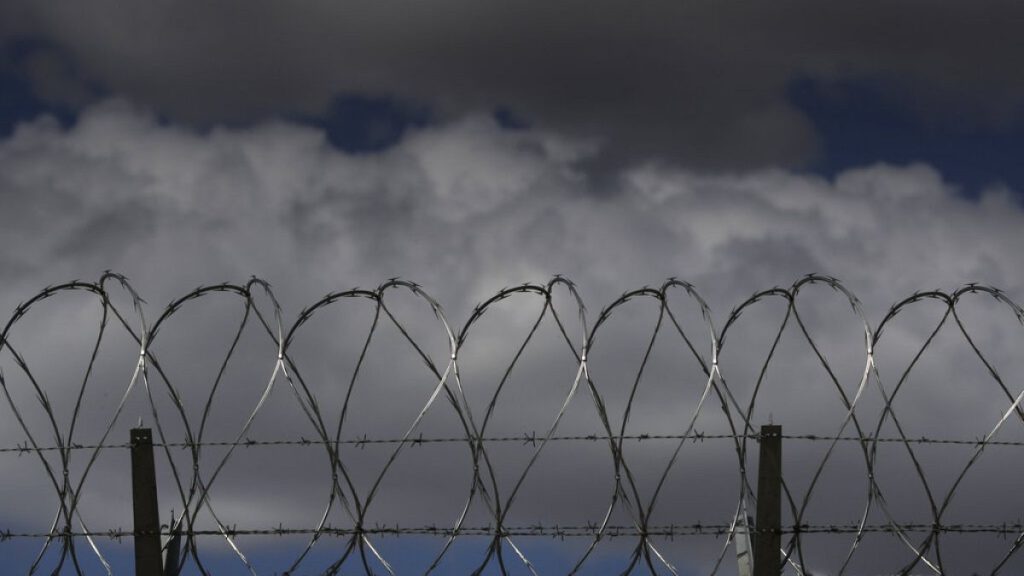Incident Overview and Initial Response:
On a Friday morning in Arles, France, a tense situation unfolded at the local prison as a prisoner, armed with a makeshift bladed weapon, took four members of the medical team and a prison guard hostage. News of the incident quickly spread, prompting an immediate response from authorities. A specialized police unit, equipped to handle hostage situations, was dispatched to the scene to secure the prison and begin negotiations. French Justice Minister Gérald Darmanin publicly acknowledged the gravity of the situation via social media, assuring the public that all available resources were being mobilized and that he was personally monitoring developments. The early stages of the event were fraught with uncertainty as details remained scarce and the safety of the hostages was paramount.
Contextualizing the Arles Prison and its Security:
The Arles prison, where the hostage situation occurred, is a correctional facility responsible for housing individuals convicted of various crimes. Like all prisons, it operates under strict security protocols designed to prevent incidents such as escapes, violence, and hostage-taking. These measures typically include surveillance systems, controlled access points, regular patrols, and searches for contraband. However, the fact that a prisoner managed to obtain a weapon and take hostages raises questions about potential security vulnerabilities within the facility. A thorough investigation following the incident will likely be conducted to assess the effectiveness of existing security measures, identify any breaches, and implement changes to prevent similar occurrences in the future.
Psychological Dynamics of Hostage Situations and Negotiation Strategies:
Hostage situations are inherently complex and volatile, often involving a delicate interplay of psychological factors. The motivations of hostage-takers can vary widely, ranging from political demands to personal grievances, mental instability, or desperate attempts to escape confinement. Negotiators face the challenging task of establishing communication with the perpetrator, understanding their demands, and de-escalating the situation while prioritizing the safety of the hostages. Building rapport with the hostage-taker is crucial, requiring careful attention to their emotional state and avoiding any actions that could exacerbate tensions. Negotiations can be protracted and demanding, requiring patience, strategic thinking, and a deep understanding of human behavior under duress.
The Impact on Hostages and Their Families:
Being taken hostage is a traumatic experience with potentially long-lasting psychological consequences. The fear, uncertainty, and sense of helplessness experienced during captivity can lead to post-traumatic stress disorder (PTSD), anxiety, depression, and other mental health challenges. The families of hostages also endure immense emotional strain as they anxiously await news of their loved ones’ safety. Support systems, including counseling and therapy, are essential for both hostages and their families to cope with the aftermath of such an ordeal and begin the healing process. The incident in Arles serves as a stark reminder of the human cost of such events and the need for robust support services for those affected.
Media Coverage and Public Response:
Hostage situations invariably attract significant media attention, with news outlets providing updates as the situation unfolds. While keeping the public informed is important, responsible reporting is crucial to avoid sensationalizing the event or jeopardizing the safety of the hostages. Excessive media coverage can also create additional stress for the families involved and hinder the negotiation process. Public response to hostage situations often involves a mixture of concern, fear, and speculation. Social media platforms can amplify these emotions, sometimes leading to the spread of misinformation. It is vital to rely on credible news sources and avoid sharing unverified information during such sensitive events.
Potential Legal and Administrative Repercussions:
Following the resolution of the hostage situation, there will likely be legal and administrative consequences for the perpetrator. Depending on the specific circumstances and applicable laws, the individual could face charges related to hostage-taking, assault, and possession of a weapon within a correctional facility. The incident may also trigger internal investigations within the prison system to assess security protocols and identify any systemic failures that contributed to the event. Furthermore, the incident could prompt a broader discussion about prison reform, focusing on improving safety and security measures, addressing mental health concerns among inmates, and enhancing training for prison staff to better manage and prevent such crises.














